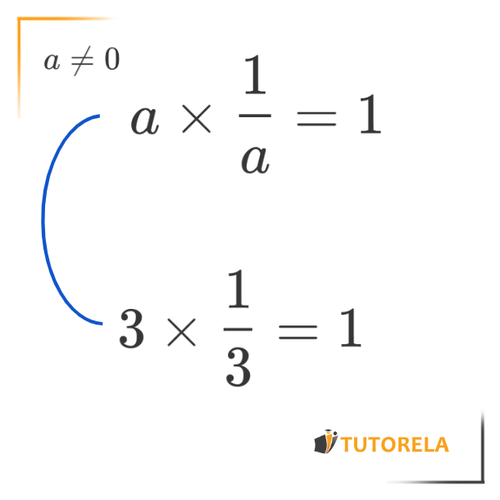Two numbers are multiplicative inverses (also called reciprocals) when their product results in .
For example:
and are multiplicative inverses because
Two numbers are multiplicative inverses (also called reciprocals) when their product results in .
For example:
and are multiplicative inverses because
Whenever is different from , it follows that

Note: Zero does not have a multiplicative inverse because division by zero is undefined.
Division is equivalent to multiplication by its multiplicative inverse,
That is:
Because is the multiplicative inverse of
Generally:
\( 0+0.2+0.6= \) ?
Two numbers are multiplicative inverses when their multiplication results in .
For example:
and are multiplicative inverses because
More examples:
The multiplicative inverse of is
The multiplicative inverse of is
The multiplicative inverse of is
The multiplicative inverse of is
The multiplicative inverse of is
The multiplicative inverse of is
Examples with negative numbers:
The multiplicative inverse of is because
The multiplicative inverse of is because
Whenever a is different from , it happens that
Why can't zero have a multiplicative inverse?
Zero has no multiplicative inverse because is undefined. No number multiplied by can equal , since any number times always equals .
Alternative notation: The multiplicative inverse can also be written using exponent notation:
\( 12+3\times0= \)
\( 12+1+0= \) ?
\( 9 \times (2 \times 1) = \)
Division is equivalent to multiplication by the multiplicative inverse,
that is:
This is because is the multiplicative inverse of
In general:
Why does this work?
Dividing by a fraction is the same as multiplying by its reciprocal. When you divide by , you're essentially asking "how many 's fit into ?" The answer is .
Solve the following exercises
?
According to the order of operations, the exercise is solved from left to right as it contains only an addition operation:
0.8
According to the order of operations, we first multiply and then add:
12
?
According to the order of operations, the exercise is solved from left to right as it only involves an addition operation:
13
First, calculate the expression within the parentheses:
Now, multiply the result by 9:
Thus, the final answer is 18.
18
According to the order of operations, we first solve the expression in parentheses:
Now we multiply:
40
\( 8\times(5\times1)= \)
Solve the following exercise:
\( 9-0+0.5= \)
Solve the following exercise:
\( 12+3\cdot0= \)